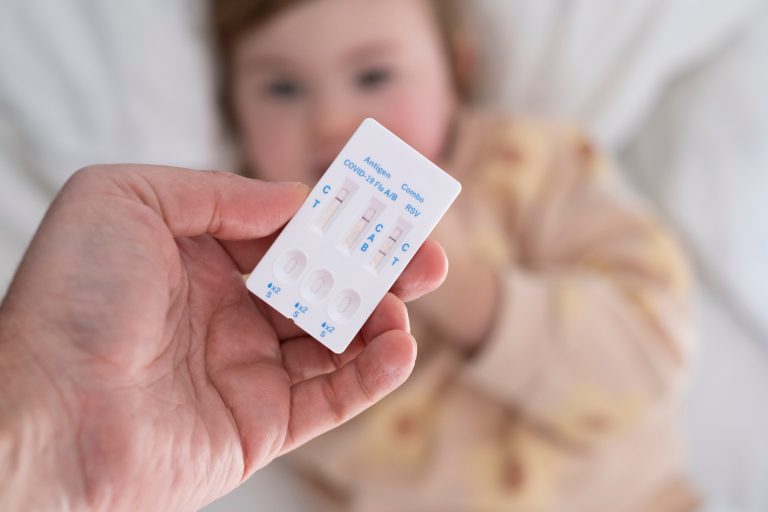Respiratory syncytial virus (RSV) is the leading cause of bronchiolitis and lower respiratory tract infections (LRTI) in young children and can lead to severe illness in infants. It is highly contagious, primarily spreading through respiratory droplets, and re-infections can occur. Over the past decade (excluding pandemic years 2020 and 2021), the RSV season typically begins in mid-February (week 7), with the onset ranging from late-January to late-February, usually preceding the influenza season.
RSV Season Update
The RSV season started in week 11 (week starting 10 March 2025) when the three-week moving average of the detection rate in children aged <5 years from inpatient pneumonia surveillance in public hospitals remained above 15% for two consecutive weeks. Compared to historical data (excluding the SARS-CoV-2 pandemic period), the start of the 2025 RSV season is approximately 4 weeks later than the average. Among cases with RSV subgroup available in South Africa in 2025, the RSV-A subgroup has accounted for a majority of cases, followed by a smaller proportion of RSV-B subgroup viruses. Weekly reports documenting RSV circulation are available on: https://www.nicd.ac.za/diseases-a-z-index/disease-index-covid-19/surveillance-reports/weekly-respiratory-pathogens-surveillance-report-week/.
Alert To Clinicians
Clinicians and paediatric hospitals/intensive care units are reminded to anticipate an increase in paediatric admissions during the RSV season. Healthcare providers are encouraged to prepare and allocate adequate resources to respond to the surge in RSV cases.
Diagnosis of RSV
Clinicians should consider RSV in the differential diagnosis for severe respiratory illness, particularly in young children. While most infants with RSV-associated bronchiolitis do not require hospitalisation, certain children are at higher risk for severe disease and hospitalisation. Infants under 6 months of age are more likely to develop severe symptoms, including hypoxia, severe respiratory distress (e.g., tachypnoea, nasal flaring, or lower chest retractions), inability to feed, or apnoea, which may require hospitalisation. In very young infants, symptoms such as irritability, decreased activity, and breathing difficulties may be the only early signs of illness. Risk factors for severe RSV-associated disease include prematurity, congenital heart disease, chronic lung disease of prematurity, neurological conditions, immunodeficiency, lack of breastfeeding, and age under 6 months.
Prevention of RSV
Prevention strategies include isolating children with influenza-like symptoms (sick children should stay home from crèches or schools for a few days) and promoting proper sneeze and cough hygiene among children and adults caring for infants. Prophylactic antibiotics are not recommended for children with upper respiratory tract infections. Monthly administration of the monoclonal antibody palivizumab during the RSV season has been shown to effectively prevent severe RSV in infants and children at high risk. However, the high cost and the need for monthly intramuscular injections limit its accessibility. In some countries, such as the United States and Europe, new maternal vaccines and long-acting monoclonal antibodies for RSV prevention in infants have been approved since 2023, but these products are not yet available in South Africa.





